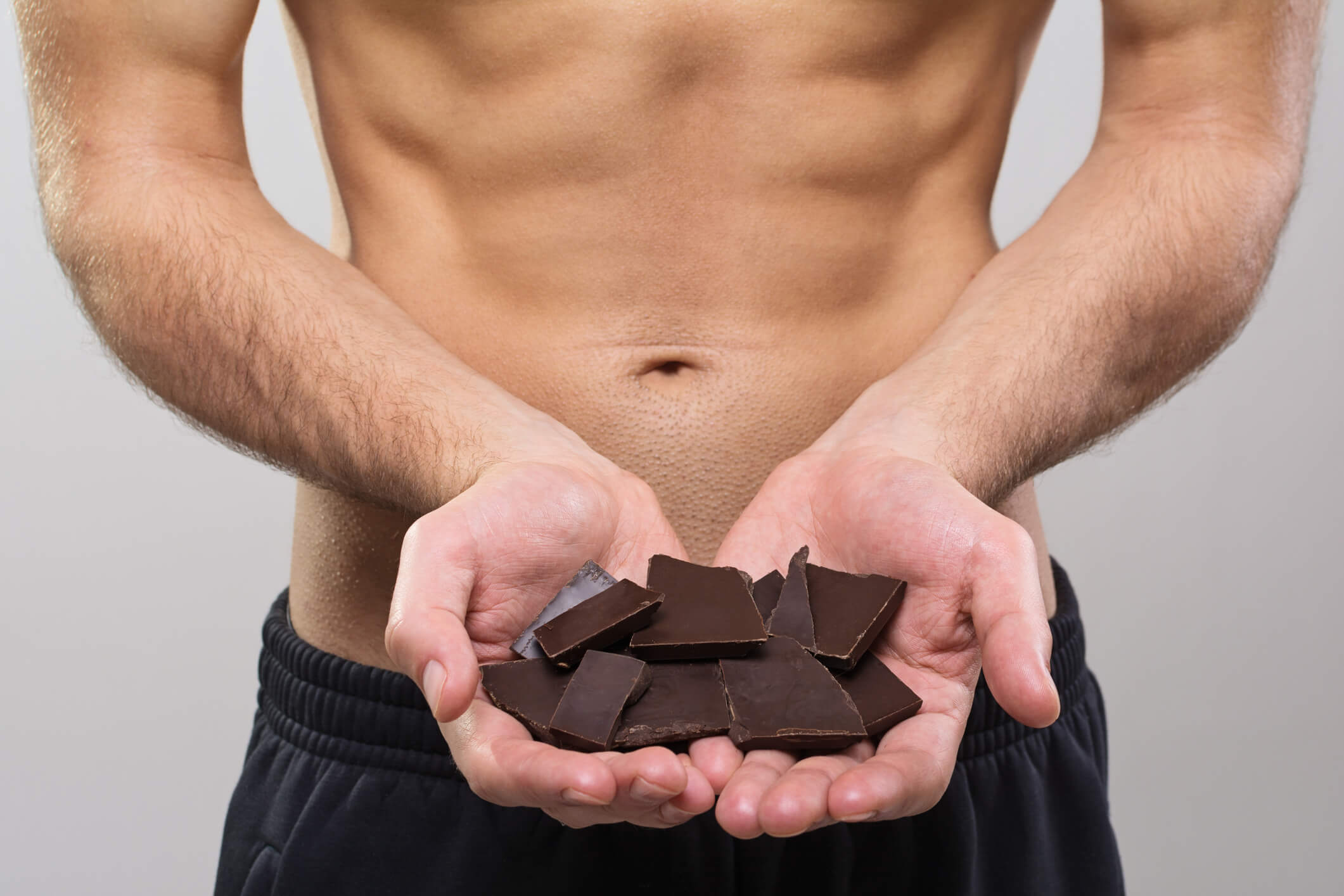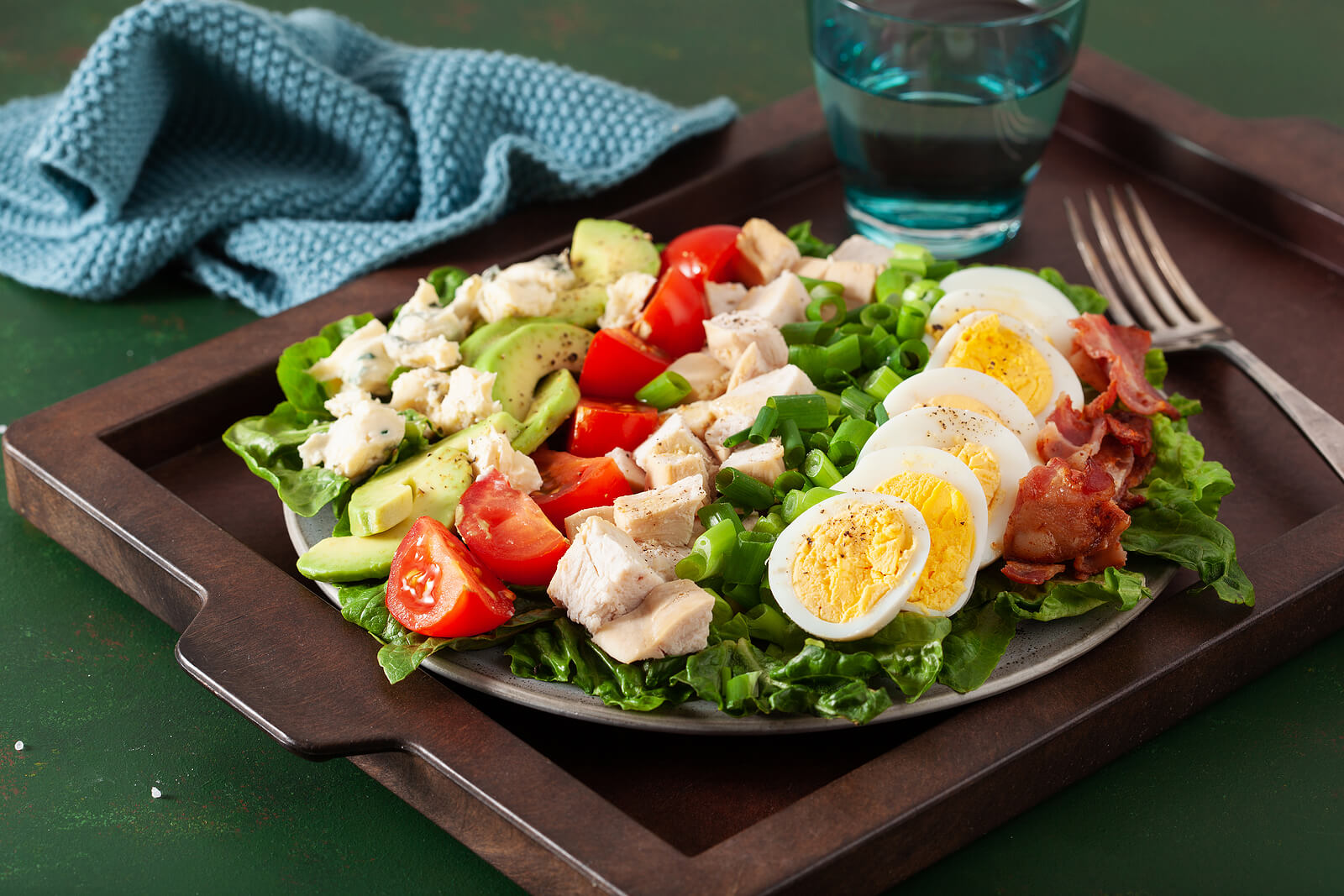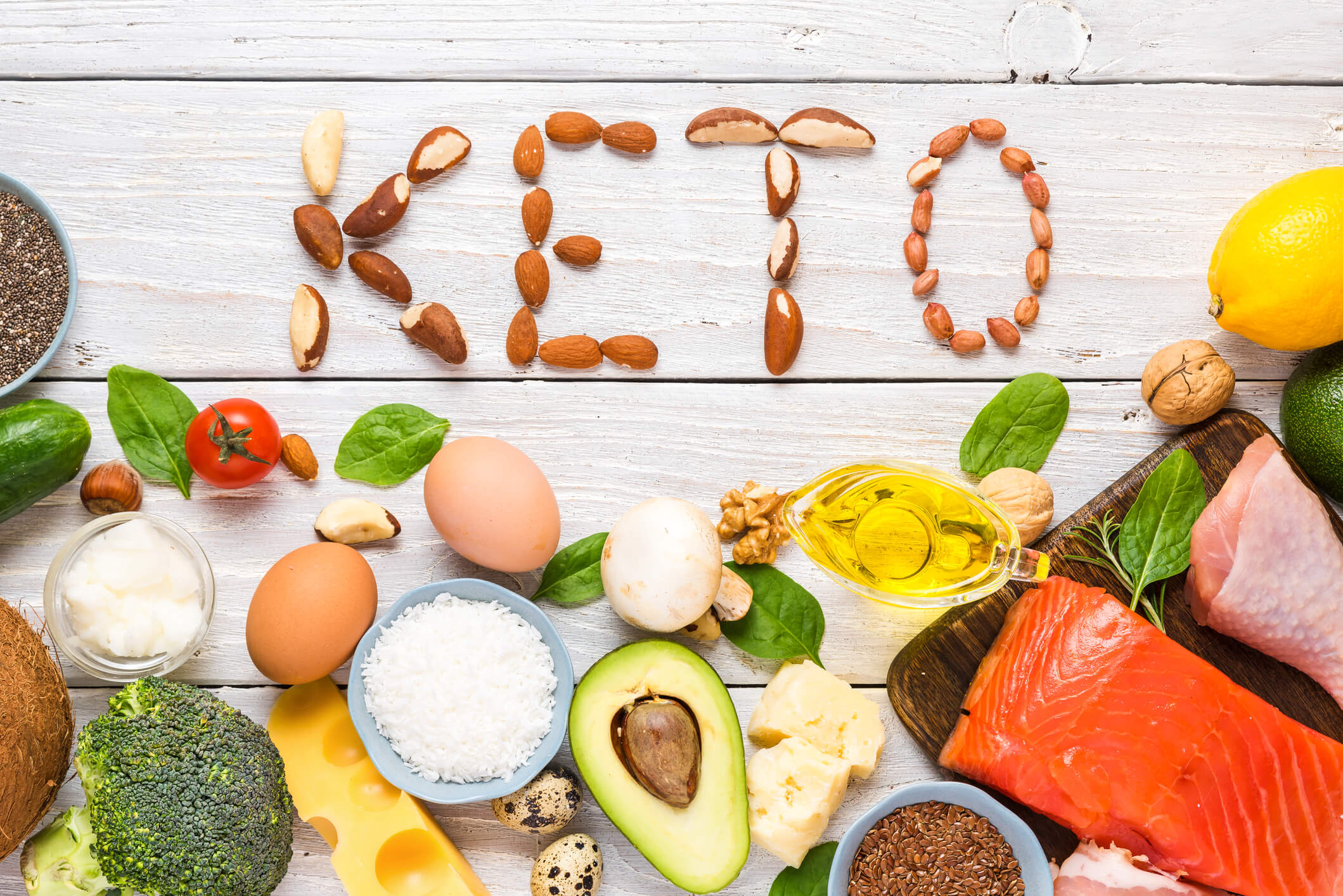If you’re looking to get six-pack abs, you’re probably wondering how much sugar you can include in your diet. The truth is, sugar can be a double-edged sword when it comes to achieving a toned midsection.
On one hand, sugar provides a quick source of energy that can help you power through workouts. On the other hand, consuming too much sugar can lead to weight gain and increased body fat, which can make it harder to reveal your abs.
So how much sugar should you include in your diet to get six-pack abs? The answer depends on a variety of factors, including your body type, activity level, and overall diet. Generally speaking, experts recommend limiting added sugars to no more than 10% of your daily caloric intake.
For a 2,000-calorie diet, that’s about 50 grams of added sugar per day. However, if you’re trying to lose weight or reveal your abs, you may need to cut back even further.
Understanding the Role of Sugar in Diet
If you’re aiming to get six-pack abs, you might be wondering how much sugar you should include in your diet. Sugar is a type of carbohydrate that provides energy to the body. However, consuming too much sugar can be harmful to your health and fitness goals.
There are two types of sugars: natural and added. Natural sugars are found in fruits, vegetables, and dairy products, while added sugars are added to processed foods and drinks. Added sugars include high-fructose corn syrup, honey, dextrose, and other sweeteners.
When it comes to getting six-pack abs, it’s important to limit your intake of added sugars. Consuming too much-added sugar can lead to weight gain, which can make it harder to achieve a lean physique. Additionally, high sugar intake has been linked to a higher risk of developing chronic diseases like type 2 diabetes and heart disease.
The American Heart Association recommends that men limit their daily added sugar intake to no more than 36 grams, or 9 teaspoons, per day. For women, the recommended limit is 25 grams, or 6 teaspoons, per day. However, keep in mind that this is just a general guideline and your individual needs may vary based on factors like age, activity level, and overall health.
It’s also important to note that not all sugars are created equal. Fructose, a type of sugar found in fruits and some sweeteners, has been linked to negative health effects when consumed in excess. High-fructose corn syrup, which is commonly added to processed foods and drinks, is particularly harmful due to its high fructose content.
In summary, when it comes to getting six-pack abs, it’s important to be mindful of your sugar intake. Aim to limit your consumption of added sugars and focus on getting natural sugars from whole, nutrient-dense foods like fruits and vegetables. By doing so, you can support your health and fitness goals while still enjoying the occasional sweet treat.
How Sugar Affects Body Composition
If you’re looking to get six-pack abs, you need to pay attention to your body composition. Body composition refers to the amount of fat, muscle, and other tissues in your body. To get six-pack abs, you need to reduce your overall body fat percentage, which means you need to pay attention to your diet, including your sugar intake.
Sugar can affect your body composition in several ways. Consuming excess sugar can lead to weight gain and obesity, which can increase your overall body fat percentage. When you have excess body fat, it can be difficult to see your abdominal muscles, including the rectus abdominis, which is the muscle responsible for the six-pack appearance.
Additionally, consuming excess sugar can lead to insulin resistance, which can make it difficult for your body to burn fat. Insulin resistance occurs when your body becomes less sensitive to insulin, which is the hormone responsible for regulating blood sugar levels. When your body becomes less sensitive to insulin, it can lead to weight gain and difficulty losing weight.
To get six-pack abs, you need to reduce your overall body fat percentage, which means you need to reduce your sugar intake. This doesn’t mean you need to eliminate sugar from your diet completely, but you should aim to consume it in moderation.
One way to reduce your sugar intake is to avoid processed foods and beverages, which often contain high levels of added sugars. Instead, focus on consuming whole foods, such as fruits, vegetables, lean proteins, and healthy fats. These foods can help regulate blood glucose levels, which can help you maintain a healthy weight and body fat percentage.
In summary, excess sugar consumption can negatively affect your body composition, leading to weight gain, obesity, and difficulty losing weight. To get six-pack abs, you need to reduce your overall body fat percentage, which means you need to reduce your sugar intake. Focus on consuming whole foods and avoiding processed foods and beverages that contain high levels of added sugars.
Sugar Intake and Six-Pack Abs
When it comes to getting a six-pack, sugar intake is an important factor to consider. While sugar can be a quick source of energy, consuming too much of it can lead to weight gain and prevent you from achieving defined chiseled abs.
To get six-pack abs, you need to reduce your overall body fat percentage. This means that you need to create a calorie deficit by burning more calories than you consume. One of the easiest ways to do this is by reducing your sugar intake.
The American Heart Association recommends that men should consume no more than 9 teaspoons (36 grams) of added sugar per day, while women should consume no more than 6 teaspoons (24 grams) per day. However, if you are trying to get six-pack abs, you may want to aim for even less.
To reduce your sugar intake, start by cutting back on sugary drinks like soda, sports drinks, and energy drinks. These drinks can be high in calories and sugar, and can quickly add up to your daily sugar intake. Instead, opt for water, unsweetened tea, or black coffee.
You should also try to limit your intake of processed foods, which can be high in added sugars. Instead, focus on eating whole, nutrient-dense foods like fruits, vegetables, lean proteins, and healthy fats. These foods will not only help you reduce your sugar intake but also provide your body with the nutrients it needs to build strong, defined abs.
Remember, reducing your sugar intake is just one part of the equation when it comes to getting six-pack abs. You also need to engage in regular exercise, which can help you burn calories and build muscle. With a combination of a healthy diet and regular exercise, you can achieve the chiseled, defined abs you’ve always wanted.
Recommended Sugar Intake for Different Ages
When it comes to getting six-pack abs, sugar intake is an important factor to consider. The American Heart Association recommends limiting added sugar intake to no more than 6 teaspoons (25 grams) per day for women and 9 teaspoons (36 grams) per day for men. However, this recommendation does not take into account age differences.
As you age, your body’s ability to process sugar changes. Children and teenagers have higher energy needs and can handle more sugar than adults. However, as you reach adulthood, your metabolism slows down, and your body becomes less efficient at processing sugar.
According to the American Heart Association, children between the ages of 2 and 18 should consume no more than 25 grams (6 teaspoons) of added sugar per day. For adults over 18, the recommendation is no more than 36 grams (9 teaspoons) of added sugar per day for men and 25 grams (6 teaspoons) for women.
It’s important to note that these recommendations are for added sugars, not naturally occurring sugars found in fruits and vegetables. Naturally occurring sugars are not as harmful as added sugars because they come with fiber, vitamins, and minerals that help your body process the sugar.
In addition to limiting added sugar intake, it’s also important to choose foods with a low glycemic index. Foods with a low glycemic index release their sugar load slowly, allowing the body to process the sugar more efficiently. Foods with a high glycemic index, such as sugary drinks and processed foods, can cause a spike in blood sugar levels and lead to weight gain and other health problems.
In summary, limiting added sugar intake is crucial for getting six-pack abs, but the recommended intake varies depending on your age. Children and teenagers can handle more sugar than adults, but as you age, your body becomes less efficient at processing sugar. Stick to the American Heart Association’s recommendations and choose foods with a low glycemic index to help your body process sugar more efficiently.
Importance of a Balanced Diet for Six-Pack Abs
When it comes to getting six-pack abs, a balanced diet is crucial. You cannot out-train a bad diet, and if you want to achieve visible abs, you need to pay attention to what you eat. A balanced diet includes all the necessary macronutrients and micronutrients that your body needs to function optimally.
To get six-pack abs, you need to be in a calorie deficit, which means you need to consume fewer calories than you burn. However, you should not restrict your calorie intake too much, as this can lead to muscle loss and a slower metabolism. Instead, you should aim for a moderate calorie deficit of around 500 calories per day.
Protein is essential for building and repairing muscle tissue, which is vital for getting six-pack abs. You should aim to consume around 1 gram of protein per pound of body weight per day. Good sources of protein include lean meats, fish, eggs, beans, nuts, and seeds.
Fiber is also essential for a balanced diet, as it helps to keep you feeling full and satisfied. Good sources of fiber include vegetables, fruits, whole grains, beans, and lentils. These foods are also rich in micronutrients such as vitamins and minerals, which are essential for overall health.
Healthy fats are also important for a balanced diet, as they help to support hormone production and brain function. Good sources of healthy fats include fatty fish, nuts, seeds, and avocado. Omega-3 fatty acids, in particular, are important for reducing inflammation and promoting heart health.
In conclusion, a balanced diet is crucial for getting six-pack abs. You should aim to consume a moderate calorie deficit and ensure that your diet includes plenty of protein, fiber, vegetables, fruits, whole grains, beans, nuts, seeds, healthy fats, and omega-3 fatty acids. By following these guidelines and staying consistent with your diet, you can achieve visible abs and improve your overall health and fitness.
Role of Exercise in Achieving Six-Pack Abs
When it comes to achieving six-pack abs, exercise plays a crucial role. While diet is essential for reducing body fat, exercise helps to tone and strengthen the abdominal muscles.
Cardiovascular exercise is an effective way to burn calories and reduce overall body fat, including abdominal fat. Activities such as running, cycling, and swimming can help you burn a significant amount of calories in a short amount of time. Incorporating cardio into your routine can help you achieve a calorie deficit, which is necessary for losing weight and revealing your abs.
Strength training is also essential for developing six-pack abs. Resistance training exercises such as crunches, planks, and sit-ups can help to tone and strengthen the abdominal muscles. Incorporating weightlifting into your routine can also help to increase muscle mass, which can boost your metabolism and help you burn more calories throughout the day.
In addition to traditional abdominal exercises, incorporating twisting movements into your routine can help to target the oblique muscles, which are located on the sides of the abdomen. Exercises such as Russian twists, bicycle crunches, and side planks can help to tone and strengthen the oblique muscles.
Overall, incorporating a variety of exercises into your routine can help you achieve six-pack abs. While it’s important to focus on abdominal exercises, it’s also essential to include cardio and strength training to burn calories and build muscle mass. Remember to consult with a personal trainer or fitness professional to design a workout plan that is tailored to your specific goals and fitness level.
Sugar in Beverages and Processed Foods
When it comes to getting six-pack abs, the amount of sugar you consume is crucial. Sugar is found in many foods and drinks, including beverages and processed foods. The American Heart Association recommends that men should consume no more than 9 teaspoons (36 grams) of added sugar per day, and women should consume no more than 6 teaspoons (25 grams) of added sugar per day.
Beverages are one of the main sources of added sugar in the American diet. Soda, energy drinks, sports drinks, and sweetened tea and coffee are all high in added sugar. A 12-ounce can of soda can contain up to 10 teaspoons (40 grams) of sugar, which is more than the recommended daily limit for men and women. Instead of sugary drinks, try unsweetened tea or coffee, or water with lemon or lime for flavor.
Processed foods are another significant source of added sugar. Cakes, cookies, candy, and other sweets are obvious sources of added sugar, but many other processed foods also contain added sugar. Breakfast cereals, granola bars, and even some types of bread can be high in added sugar. When choosing processed foods, read the labels carefully and look for products that are low in added sugar.
Corn syrup and high-fructose corn syrup are common sweeteners used in processed foods. These sweeteners are cheaper than sugar and are often used to sweeten foods and beverages. However, they are also associated with health problems, including obesity, type 2 diabetes, and heart disease. Try to avoid foods and drinks that contain corn syrup or high-fructose corn syrup.
Fruit juices are often marketed as a healthy alternative to soda, but they can be just as high in sugar. Even juices that are 100% fruit can be high in sugar and calories. Instead of drinking fruit juice, try eating whole fruits, which are high in fiber and other nutrients.
In summary, to get six-pack abs, it’s important to limit the amount of sugar you consume. Beverages and processed foods are two of the main sources of added sugar in the American diet, so it’s important to choose your foods and drinks carefully. Opt for water, unsweetened tea or coffee, and whole fruits instead of sugary drinks and snacks.
Controlling Sugar Intake
If you want to get six-pack abs, then reducing your sugar intake is crucial. Sugar is known to cause weight gain, which can cover up your abs. So, how much sugar should you include in your diet to get six-pack abs? The answer is simple – you should control your sugar intake.
Controlling your sugar intake doesn’t mean you have to avoid it completely. You can still eat sugar, but you should eat it in moderation. According to the American Heart Association, men should consume no more than 36 grams of sugar per day, while women should consume no more than 25 grams of sugar per day. However, if you are trying to get six-pack abs, you may want to consume even less sugar.
To control your sugar intake, you should avoid processed foods and beverages that are high in added sugar. These foods include soda, candy, cookies, and other sweets. Instead, you should eat raw, whole foods that contain natural sugars, such as fruits and vegetables. These foods not only provide you with the necessary nutrition your body needs but also help to keep your appetite in check.
When you eat foods with added sugar, they can cause a spike in your blood sugar levels, which can lead to an increase in appetite. This can make it difficult to control your calorie intake, which can lead to weight gain. By eating raw, whole foods, you can avoid these spikes in blood sugar levels and keep your appetite in check.
In addition to avoiding processed foods, you should also read food labels to check the ingredients. Many foods contain hidden sugars, such as high fructose corn syrup, which can add up quickly. By reading food labels, you can make informed decisions about the foods you eat and avoid consuming too much sugar.
In summary, controlling your sugar intake is crucial if you want to get six-pack abs. You should aim to eat raw, whole foods and avoid processed foods that are high in added sugar. By doing so, you can keep your appetite in check, control your calorie intake, and achieve your goal of getting six-pack abs.
Water and Hydration
Water is essential for your body to function properly. It helps regulate body temperature, transport nutrients, and remove waste. Staying hydrated is especially important when you’re trying to get six-pack abs, as it can help reduce bloating and make your muscles look more defined.
To stay hydrated, aim to drink at least 8 glasses of water per day. You may need more if you’re exercising or live in a hot climate. If you find it difficult to drink plain water, try adding a slice of lemon or lime for flavor.
In addition to drinking water, you can also stay hydrated by eating hydrating foods. These include fruits and vegetables with high water content, such as watermelon, cucumber, and celery. Eating these foods can also help you feel full and satisfied, which can prevent overeating and help you stick to your diet.
It’s important to note that drinking too much water can be dangerous. This can lead to a condition called hyponatremia, which occurs when the sodium levels in your blood become too diluted. To avoid this, drink water in moderation and listen to your body’s thirst signals.
In summary, staying hydrated is crucial for getting six-pack abs. Drink at least 8 glasses of water per day, eat hydrating foods, and listen to your body’s thirst signals to avoid overhydration.
Impact of Genetics on Six-Pack Abs
When it comes to getting six-pack abs, genetics play a significant role. Some people are born with a predisposition to have a more defined abdominal area, while others may have a harder time achieving the same results. However, this does not mean that you cannot get six-pack abs if you do not have the “right” genes. It just means that you may need to work harder and be more disciplined with your diet and exercise routine.
One of the main factors that affect your ability to get six-pack abs is your body fat percentage. Even if you have strong abdominal muscles, if they are hidden under a layer of fat, you will not be able to see them. Genetics can influence where your body tends to store fat, making it harder to lose fat in certain areas. However, with consistent effort and a healthy diet, you can still achieve a low enough body fat percentage to reveal your six-pack.
Another way genetics can impact your ability to get six-pack abs is through muscle development. Some people naturally have more defined abdominal muscles, while others may need to work harder to achieve the same level of definition. However, with the right exercises and proper form, you can still build strong abdominal muscles regardless of your genetics.
In addition to genetics, your diet also plays a crucial role in getting six-pack abs. While it is important to limit your sugar intake, it is not necessary to completely eliminate it from your diet. Consuming some sugar can provide your body with the energy it needs to power through intense workouts. However, it is essential to choose healthy sources of sugar, such as fruits, rather than processed foods and sugary drinks.
Overall, genetics can impact your ability to get six-pack abs, but it is not the only factor. With consistent effort, a healthy diet, and the right exercise routine, anyone can achieve a defined abdominal area.
Other Factors Influencing Six-Pack Abs
Getting six-pack abs is not just about reducing sugar intake. There are many other factors that influence the development of your abs.
Boosting Metabolism
Metabolism plays a crucial role in the development of six-pack abs. A faster metabolism helps you burn more calories, which in turn helps you lose weight and reduce belly fat. To boost your metabolism, you can try:
- Eating protein-rich foods
- Drinking green tea
- Doing high-intensity interval training (HIIT)
- Getting enough sleep
Controlling Body Weight
Your body weight is a critical factor in the development of six-pack abs. If you are overweight, you will need to lose weight to reveal your abs. To control your body weight, you can:
- Eat a balanced diet
- Exercise regularly
- Monitor your calorie intake
Reducing Belly Fat
Belly fat is the biggest hurdle in the development of six-pack abs. To reduce belly fat, you can try:
- Eating a fiber-rich diet
- Doing cardio exercises
- Drinking plenty of water
- Reducing stress
Knowledge and Consistency
Knowledge and consistency are key factors in achieving six-pack abs. You need to have a good understanding of nutrition and fitness to make the right choices. You also need to be consistent with your diet and exercise regimen to see results.
Posture and Standing Up
Your posture and how you stand can also affect the development of your abs. To improve your posture and stand up straight, you can try:
- Strengthening your core muscles
- Stretching your back muscles
- Sitting less and standing more
Working on the Sides
Finally, working on the sides of your abs (obliques) is also important for achieving a complete six-pack. To work on your obliques, you can try:
- Side planks
- Russian twists
- Bicycle crunches
By focusing on these other factors in addition to reducing sugar intake, you can achieve six-pack abs faster and more effectively.
Health Risks Associated with Excessive Sugar Intake
If you’re trying to get six-pack abs, you may be tempted to cut out all sugar from your diet. However, this may not be the best approach. While it’s true that consuming too much sugar can lead to weight gain and other health problems, cutting out all sugar can also be harmful.
Excessive sugar intake can increase your risk of developing type 2 diabetes. When you consume too much sugar, your body may become resistant to insulin, which is the hormone that regulates your blood sugar levels. This can lead to high blood sugar levels, which can damage your organs over time.
In addition to increasing your risk of type 2 diabetes, excessive sugar intake can also lead to poor heart health. Consuming too much sugar can lead to high blood pressure, which can increase your risk of heart disease and stroke. It can also increase your risk of developing high cholesterol levels, which can lead to heart disease.
To avoid these health risks, it’s important to limit your sugar intake to a healthy level. The American Heart Association recommends that men consume no more than 36 grams of added sugar per day, and women consume no more than 25 grams of added sugar per day. Keep in mind that this includes sugar from all sources, including processed foods and beverages.
Overall, while sugar is an important part of a healthy diet, it’s important to consume it in moderation. By limiting your sugar intake to a healthy level, you can reduce your risk of developing type 2 diabetes and poor heart health.






Leave a Reply